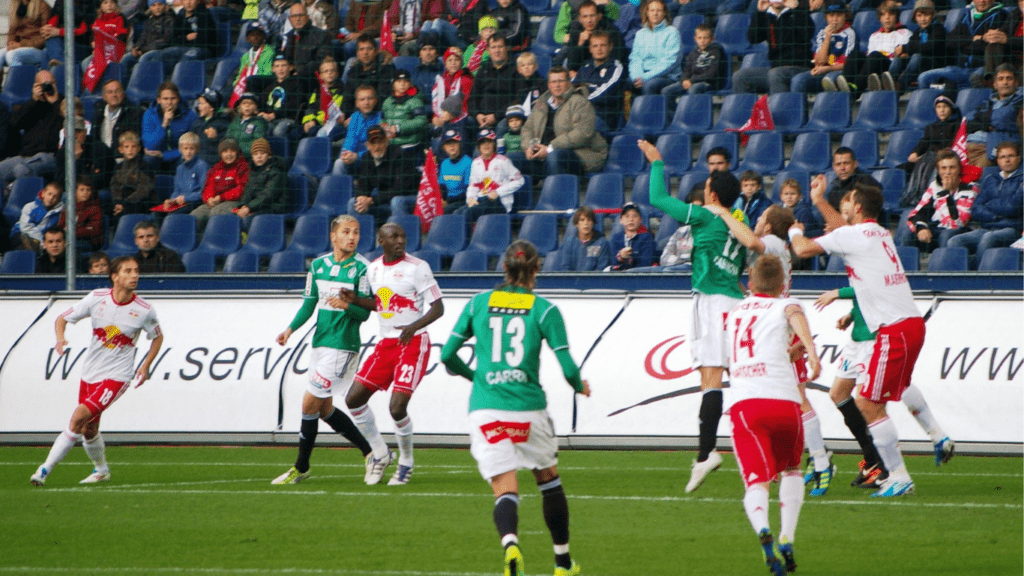Understanding Sports Betting
Betting on sports involves much more than picking a winner. It’s about analyzing data and understanding the various types of bets you can place.
Types of Sports Bets
There are several types of sports bets, each with distinct characteristics:
- Moneyline Bets: These bets are straightforward. You’re picking the team or player you believe will win. For example, if you bet on Team A to beat Team B and Team A wins, you get the payout.
- Point Spread Bets: These bets level the playing field. You’re not just betting on a winner but on the margin of victory. For instance, if a team is favored by 7 points, they need to win by more than 7 points for your bet to win.
- Totals (Over/Under) Bets: These involve predicting the total score of the game. You’ll bet on whether the total points scored by both teams will be over or under a set number.
- Parlay Bets: These combine multiple bets into one. Each leg of the parlay must win for the bet to pay out. Parlays can involve moneyline, point spread, or totals bets.
- Futures Bets: These are wagers on events that will happen in the future, like who will win the championship. Futures bets often offer higher payouts but are harder to predict.
- Prop Bets (Proposition Bets): These bets focus on specific events within a game, like which player will score first. Prop bets can add an extra layer of excitement to watching sports.
Key Terminology in Sports Betting
Understanding sports betting vocabulary is crucial:
- Odds: The ratio of the payoff to the stake. Odds are used to determine how much you’ll win relative to your bet.
- Favorite: The team or player expected to win. Favorites typically have lower payouts due to their higher chances of winning.
- Underdog: The team or player expected to lose. Underdogs offer higher payouts because they’re less likely to win.
- Vig (Vigorish): The bookmaker’s commission. It’s the fee you pay for placing a bet.
- Push: A tie between the bettor and the bookmaker. For example, if the point spread is 3 and the favored team wins by exactly 3 points, the bet is a push, and your stake is returned.
- Handle: The total amount of money wagered. This term can refer to the amount bet on a single game or across a specific period.
- Line Movement: Changes in the betting line. Line movements can indicate where the majority of the money is being bet.
By understanding these concepts, you’re better equipped to make informed decisions and improve your odds of success in sports betting.
Research and Analysis
Making smart bets requires thorough research and detailed analysis. By focusing on critical aspects like team and player performance, statistical data, and trends, you can improve your betting strategy.
Analyzing Team and Player Performance
Evaluating team and player performance is crucial for informed betting. Look at recent game results, player stats, and injury reports for insights. For example, a key player’s absence can significantly impact a team’s chances of winning. Assess head-to-head matchups and home/away records to identify any patterns. Recognizing strengths and weaknesses helps in predicting likely outcomes.
Utilizing Statistical Data
Use statistical data to enhance your betting decisions. Metrics like average points scored, defensive efficiency, and turnovers per game provide valuable insights. Analyze advanced stats such as Player Efficiency Rating (PER) and Win Shares for deeper understanding. Websites like ESPN and NBA provide comprehensive statistical databases. Comparing these figures across teams and seasons uncovers trends that might not be evident at first glance.
Keeping Up with Trends and News
Stay updated with the latest trends and news to make informed bets. Monitor league standings, injury reports, and any trades or transfers. Follow reputable sports news websites and official team announcements. Trends like a team’s performance in the last 10 games or a player’s hot streak can be critical. Utilize social media platforms to get real-time updates and insider information.
Developing a Betting Strategy
A well-planned betting strategy is essential for making smart bets on your favorite sports. Implementing key techniques improves decision-making and ensures a structured approach to betting.
Bankroll Management

Effective bankroll management is crucial to long-term success in sports betting. I allocate a specific amount of money for betting, never exceeding it regardless of outcomes. For instance, I might set aside $500 and divide it into smaller units, such as $20 bets. By not risking the entire bankroll on a single wager, I minimize potential losses and maintain control over my betting activities.
Setting Realistic Goals
Setting realistic goals helps in measuring progress and maintaining focus. Instead of aiming to become rich quickly, I target incremental profits, such as aiming for a 5% return on investment (ROI) each month. Realistic goals allow me to celebrate small wins and stay motivated without unrealistic expectations.
Diversifying Your Bets
Diversifying bets spreads the risk and leverages different opportunities. I mix various types of bets, including moneyline, point spread, and over/under. For example, I might place a moneyline bet on one game and an over/under bet on another. This diversification prevents heavy losses from one type of bet and increases chances of winning across multiple games.
Choosing the Right Betting Platform
Choosing the right betting platform enhances your sports betting experience. Key factors include site evaluation, understanding odds, and ensuring security.
Evaluating Betting Sites
I assess betting sites based on user experience, bonuses, and available sports. User experience impacts navigation and placing bets quickly. Bonuses like welcome offers and free bets boost my initial bankroll. It’s crucial to find platforms featuring a wide range of sports, ensuring flexibility in my bets.
Understanding Odds and Payouts
Grasping odds and payouts helps in making informed bets. Betting platforms use different odds formats like decimal, fractional, and American. For example, decimal odds display the total payout per unit stake, making it easier to calculate potential returns. Higher odds indicate higher potential payouts, though this often implies greater risk. Comparing odds across platforms can maximize potential earnings.
Security and Trustworthiness
Platform security and trustworthiness are vital. I look for sites with licenses from reputable gambling authorities like the UK Gambling Commission and the Malta Gaming Authority. A secure platform uses SSL encryption to protect my personal and financial information. Reading user reviews and checking the site’s history of reliability helps ensure trustworthiness.
Properly choosing a betting platform improves overall success and safety in sports betting.
Tips for Making Smart Bets
Making informed bets requires strategic planning and discipline. Understanding the nuances of sports betting can improve your chances of success.
Avoiding Common Pitfalls
Common pitfalls can derail even the most experienced bettors. It’s essential to avoid betting with emotions, as emotional decisions often lead to irrational choices. For example, refrain from betting on your favorite team unless objective analysis supports it. Chasing losses is another trap; impulsive bets to recover losses often result in deeper losses. Avoiding these mistakes will help maintain a disciplined approach.
Taking Advantage of Promotions and Bonuses
Promotions and bonuses provide extra value. Utilize welcome bonuses, deposit matches, and free bets to maximize your bankroll. For instance, if a site offers a 100% deposit bonus up to $200, depositing $200 will give you $400 to bet with. However, ensure you understand the terms and conditions, such as wagering requirements, to make the most of these offers.
Timing Your Bets
The timing of your bets impacts your potential returns. Placing bets early might secure better odds, especially if you anticipate a shift in the line. Conversely, waiting until closer to game time could provide more information, such as player injuries, which can affect the outcome. Balancing these factors to your advantage is key to smart betting.


 Gary Coxtersons brought his technical expertise to the development of Hype Gamble Match, ensuring the platform’s robust functionality and smooth operation. With a deep understanding of web development and platform integration, Gary was pivotal in building the backend systems that allow for real-time updates and a seamless user experience. His contributions have made it possible for users to access the latest betting odds, insights, and strategies effortlessly, supporting the overall success of the platform.
Gary Coxtersons brought his technical expertise to the development of Hype Gamble Match, ensuring the platform’s robust functionality and smooth operation. With a deep understanding of web development and platform integration, Gary was pivotal in building the backend systems that allow for real-time updates and a seamless user experience. His contributions have made it possible for users to access the latest betting odds, insights, and strategies effortlessly, supporting the overall success of the platform.